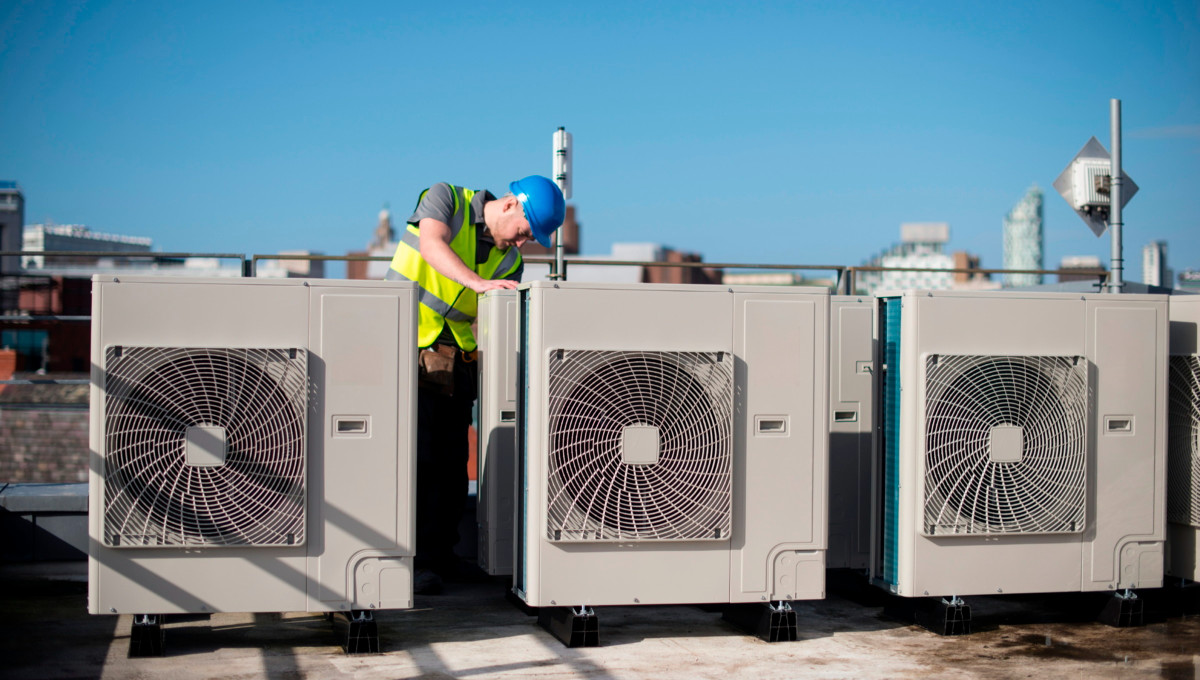4 Types of Heating Systems
Table of Contents

With so many different heating systems on the market and new ways emerging on a frequent basis, the type of heating system you opt for should be a carefully thought-out decision. Should you go for a tried-and-true gas boiler or a greener heating and cooling unit? Maybe electric radiators or water-filled radiators are more your style. There really are so many choices! At Midlands Aircon, we’re here to walk you through the four main types of heating systems for homes so you can find your perfect match. So, sit back and keep reading through this blog as we delve a little deeper into home heating systems.
Combined Air Conditioning and Heating Units
4 Types of Heating Systems
Many modern air conditioning units can also provide heating for homes during the colder months. These dual-purpose systems are also referred to as heat pumps or HVAC (Heating, Ventilation and Air Conditioning) systems. They work by using a refrigerant cycle to either absorb heat from indoor air and eject it outdoors (cooling mode) or absorb heat from outdoor air and release it indoors (heating mode), making them the perfect device for year-round use. There are many key benefits of using combined HVAC units. For one, they have an efficiency rating of 350% making them extremely cost-effective. They also offer greater convenience compared to owning two separate heating and cooling units and can be easily zoned to control the temperature within your home. They are also more environmentally friendly, emitting far less greenhouse gasses than traditional heating methods.
Gas Boilers
Gas boilers have been the popular preferred choice for heating UK homes for quite some time. However, with a proposed ban on new gas boiler installations scheduled for 2025 and a subsequent phasing-out period for these systems, this is likely to change in the coming years. They work by burning natural gasses to heat water, which then circulates through radiators and pipes to heat your home. Because of such methods, they have also been referred to as wet central heating systems. Although older gas boilers hold low-efficiency ratings, newer condensing models can achieve over 90% efficiency, heating your home for less.
Electric Heating Systems
Electrical heating systems convert electrical energy to produce heat. As the electrical current passes through resistors, it warms up and emits radiant heat, which then heats your home. These types of heating systems are too energy efficient and are convenient for zone heating, using 100% of the converted energy, offering precise room-by-room control. However, they tend to have higher running costs than gas boilers since electricity is pricier per kWh.
Biomass Boilers
Biomass boilers burn renewable organic materials like wood pellets to provide central heating and hot water. The carbon released during this process is balanced out by the carbon absorbed as new biomass grows. Biomass boilers are extremely environmentally friendly, reducing the amount of fossil fuels burned into the atmosphere. As a relatively new way of heating homes, they have higher upfront costs. However, their ongoing expenses are low as biomass fuels are relatively cheap to purchase.
How To Choose the Right Type Of Heating System For Your Home
When selecting a new heating system for your home it’s important to consider efficiency, upfront and ongoing costs, emission levels as well as your unique needs and heating requirements. Combined air conditioning and heating units offer whole-home heating and cooling from one unit, a particularly useful feature with the unpredictable UK climate. For a free quote on our combined air conditioning and heating units, feel free to use our handy domestic price calculator or get in touch with a member of the team for further assistance.
Share:
More Posts








